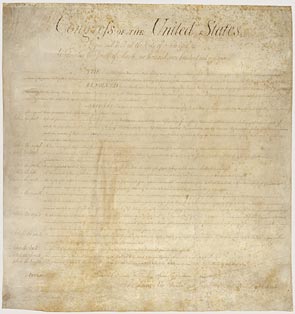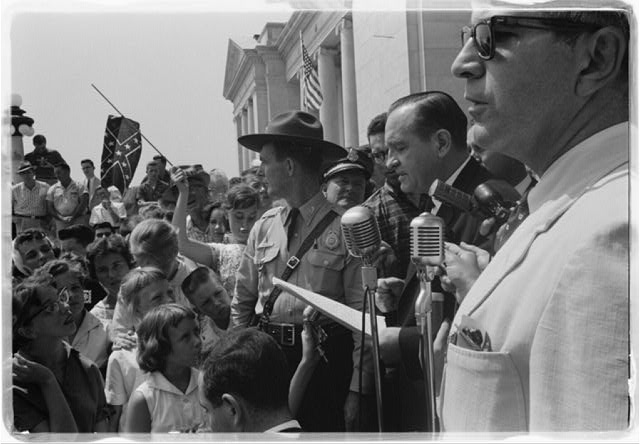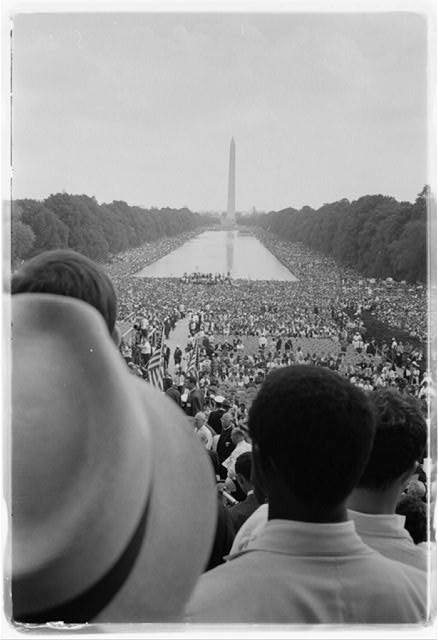THE BILL OF RIGHTS
Amendments 1-10 of the Constitution
In Plain and Modern English

Back in the late 1700's, politicans and citizens expressed a desire to establish a Bill that would protect personal freedoms and limit the control of the federal government to prevent abuse of its powers.
After some debate, the first 10 Amendments were passed by the Senate and House of Representatives and now stands as law. Later Amendments were added on later that address such issues as race, gender, and voting. However, not to undermine the later amendments, the first 10 are considered historically the most important and are listed below.
This is a students' modern take on the Bill of Rights and is to help others understand this important document. It is in no way intended as legal counsel (come on, is this common sense).
Amendment I:
Freedom of Speech, Press, Religion, to Petition the Government,
and to Peaceable Assemble
The government cannot make a law that gives a certain religion preference over other religions or prohibits the reasonable practice of. For example, the government cannot allow public school funding for a Christian school club but not an Islamic one. Also, if a particular religion, let's say, practices polygamy or human or animal sacrifice, that WOULD be illegal since it's infringing on the rights of other humans and animals So, essentially, if the religion isn't infringing on the rights of others or breaks any established laws, the government cannot make a law that specifically targets a certain religion or group.
This amendment also protects the rights of the people to peaceably assemble and political freedom of speech. Not all speech is protected under this amendment. Such actions as yelling "bomb" on a plane and inducing fear, panic, and provoking violence aren't protected.
 Click here to view the original text
Click here to view the original text
Amendment II: :
Right to Keep and Bare Arms
The government needs a military and this amendment protects it. It also allows the citizens of the country to bear arms within reason. Of course, non-adults cannot own weapons and guns are now licensed, but if a normal-law abiding adult wants to own a gun, he or she can own one if they take the proper steps. Gun control and regulation is a rather hot topic, but when the fathers of the Constitution, wrote first it, guns were A LOT different and definitely not the semi-automatic ones we have now.
Click here to view the original text
Amendment III: :
Quartering of Troops
The government cannot make you house a soldier or take over your land in order to house troops. This was obviously a concern in the rural, post-Revolution US.
Click here to view the original text
Amendment IV: :
Unreasonable Search and Seizure
Property cannot be seized without reasonable cause or suspicion.
Click here to view the original text
Amendment V:
Due Process, Double Jeopardy, and Privacy
Citizens of the United States have a right to a trial with a jury. However, soldiers and other members of the military, do not have the right necessarily to a jury. Amendment V also protects against "Double Jeopardy" which means you can't be tried for the same crime under the same charges twice.
Click here to view the original text
Amendment VI:
Rights of the Accused
Citizens have a right to a "speedy" trial. Of course, many people nowadays do not find the judicial process "speedy" at all, but basically this protects against people being held without knowing what they are being charged with for an excessive amount of time.
Click here to view the original text
Amendment VII:
Civil Right to a Jury
In civil criminal cases, defendents have a right to a jury of peers. However, this is not true in non-criminal matters and in the military.
Click here to view the original text
Amendment VIII: :
Cruel and Unusual Punishment and Excessive Bail
This Amendment protects the people against cruel AND unusual punishment. Basically the punishment must fit the crime. For example if a man shots his neighbors' new puppy with a BB gun on his own property and his neighbor sues and the court determines that part of his sentence is a fine and that the man who shot the dog has to dress up in a dog suit and volunteer for family day at the local dog shelter, it might be unusual, but it is not cruel, and therefore is indeed a suitable punishment in the eyes of the law.
Bail for jail is also determined on a case-by-case basis. If a suspect is considered a huge flight risk, bail will be rather high but for the normal person charged with a petty crime, it should be a reasonable amount considering the charges.
Click here to view the original text
Amendment IX: :
Protection of Rights
It is illegal for the US Government to alter or void the basic principals behind the Constitional Rights. The Patriot Act tried to limit these and that, therefore, is part of the criticism behind the legislature.
Click here to view the original text
Amendment X: :
Powers of the State and People
Rights not addressed in the first 10 Amendments will have to be determined by "the people" at a later date.

Click here to view the original text
Click here if you would like to read more information about the US Bill of Rights.
Information on Picture Usage and Ownership
Click here to send me an E-mail!

